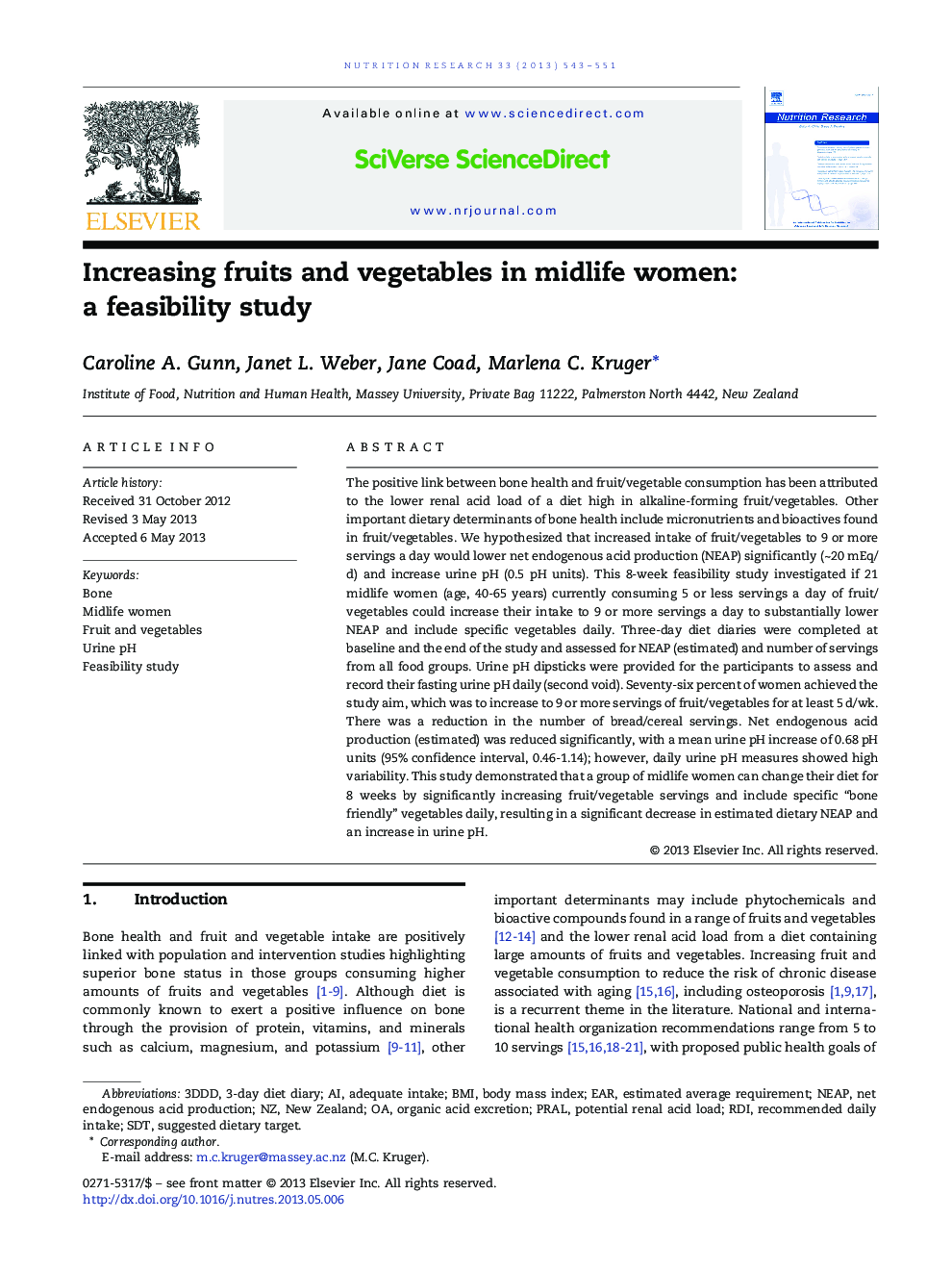| Article ID | Journal | Published Year | Pages | File Type |
|---|---|---|---|---|
| 2808977 | Nutrition Research | 2013 | 9 Pages |
The positive link between bone health and fruit/vegetable consumption has been attributed to the lower renal acid load of a diet high in alkaline-forming fruit/vegetables. Other important dietary determinants of bone health include micronutrients and bioactives found in fruit/vegetables. We hypothesized that increased intake of fruit/vegetables to 9 or more servings a day would lower net endogenous acid production (NEAP) significantly (~20 mEq/d) and increase urine pH (0.5 pH units). This 8-week feasibility study investigated if 21 midlife women (age, 40-65 years) currently consuming 5 or less servings a day of fruit/vegetables could increase their intake to 9 or more servings a day to substantially lower NEAP and include specific vegetables daily. Three-day diet diaries were completed at baseline and the end of the study and assessed for NEAP (estimated) and number of servings from all food groups. Urine pH dipsticks were provided for the participants to assess and record their fasting urine pH daily (second void). Seventy-six percent of women achieved the study aim, which was to increase to 9 or more servings of fruit/vegetables for at least 5 d/wk. There was a reduction in the number of bread/cereal servings. Net endogenous acid production (estimated) was reduced significantly, with a mean urine pH increase of 0.68 pH units (95% confidence interval, 0.46-1.14); however, daily urine pH measures showed high variability. This study demonstrated that a group of midlife women can change their diet for 8 weeks by significantly increasing fruit/vegetable servings and include specific “bone friendly” vegetables daily, resulting in a significant decrease in estimated dietary NEAP and an increase in urine pH.
